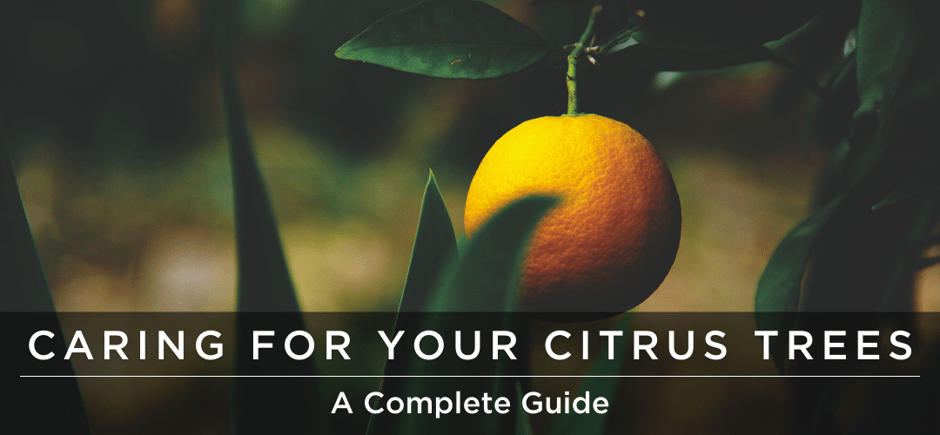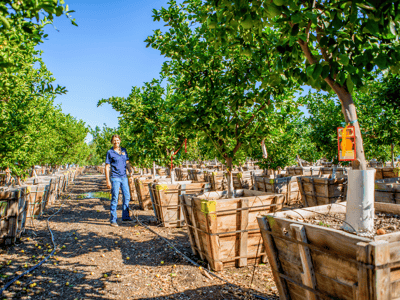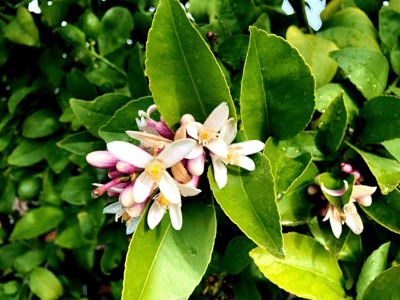
There’s nothing quite like a glass of homemade lemonade, a juicy wedge from a freshly picked orange, or a bite of luscious key lime pie. Do you want to offer your family these kinds of experiences? Then plant citrus trees on your property! It’s satisfying to know that when you grow your own, your fruit is pesticide-and herbicide-free.
Citrus trees are very easy to grow, but it’s important to provide them with the care they require. With a few pointers, you can enjoy the rewarding feeling of growing your own crops for making tasty tropical treats. Here’s what you need to know about caring for your citrus trees.
Where do Citrus Trees Grow?
Citrus trees are very particular about where they grow. Lucky for us, they love to grow outdoors in warm, semi-tropical climates, such as those found in Florida, Arizona, Nevada southern California, and along the Gulf Coast from Texas to Alabama. Smaller, full-dwarf citrus trees can also grow in containers if kept indoors or in a greenhouse.
Planting Your Citrus Trees
- Sun exposure: Whether you opt to grow Navel oranges, Eureka lemons, Mexican limes, or another type of citrus fruit, know that the tree needs ample sunlight to maximize fruit production. So pick the sunniest spot on your property—one that receives at least five hours of full, direct sunlight per day—to plant your citrus tree.
- Soil conditions: Having the right soil is also important. Citrus trees do best in sandy loam, but they can tolerate any well-draining soil. Avoid salty, dense, or chronically wet soil, which can lead to root rot. Avoid compost or heavy organic amendments because these retain too much moisture and can damage the roots of your citrus tree. We carry a tailor-made Soil Conditioner at all our Moon Valley Nurseries locations to help amend any soil and make it more suitable for growing citrus trees.
- Planting: Citrus trees have a year-round growing season, so you can plant them at any time. Still, planting in the spring is typically best to minimize shock and stress. In the warmest climates, fall plantings are also ideal. When you’re ready to plant your tree, remember to fill in the dirt no higher than the root ball to help avoid collar rot. When you have the expert planting crews at Moon Valley Nurseries plant your trees, we tackle all these details for you!
Growing Your Citrus Trees

- Watering: It’s important to water your citrus tree well to promote juicy, plump fruit production. Newly planted trees should be watered deeply two to four times per week for
the first year, depending on the season. Reduce this frequency to one to three times per week as the tree matures. You know it’s time to water your citrus tree when the top one to two inches of soil is dry. You can find detailed watering information and best practices in our watering guides here! - Fertilizing: With the proper fertilizer, your citrus tree will explode with growth and new fruit. Moon Valley Nurseries supplies custom-designed fertilizers, supplements, liquids, and pellets designed to boost the vitamins and nutrients in your soil. We can provide you with citrus-specific fertilizer high in nitrogen and iron. A slow-release formula offers the best feeding for hungry trees. You will want to fertilize your citrus trees monthly from the early spring to fall. We recommend starting on Valentine's Day and applying your last dose of fertilizer for the year on Labor Day.
- Pruning: Most trees need occasional pruning to keep their shape, and citrus trees are no exception. Train your tree into several main branches and prune up the center of the plant to increase airflow. Then, freely remove suckers, leggy branches, and any frost-damaged areas to keep the tree looking beautiful and producing fruit. Keep in mind that older trees benefit from a hard “renovation” prune every five to 10 years. Don't forget to wrap or paint any exposed trunk areas to protect your trees from sun damage.
- Mulching: Citrus trees have shallow feeder roots that benefit from some protection. A bit of mulch around the base of the tree will do the trick. We recommend creating a soil well around the trunk of the tree that matches the diameter of the canopy. Layer the inside of this well with mulch to help cool the roots and allow for deep watering and gradual release of applied nutrients. When we plant your trees, our expert crews create a mulch well around every one of your plants. If you planted your trees yourself, you can find our Premium Blend Mulch at any Moon Valley Nurseries location.
Protecting Your Citrus Trees from Cold & Pests
- Cold protection: All citrus trees are vulnerable to very low temperatures. Frost can be damaging, especially to young, less-established trees. To protect against cold spells, cover your tree with a suitable frost cloth or cover. Providing safe, supplemental heat is also recommended. A well-watered, properly fertilized tree will be hardy against most cold weather.
- Pest protection: Mites, aphids, snails, fungal infections, and other pests can also cause damage to citrus trees. Preventative sprays help discourage infestation, but for the best results, be sure to choose a product that’s safe for your fruit type, climate, and pest problem. You can find a selection of safe pest control products at any Moon Valley Nurseries location.
Pick Out a Citrus Tree Today
 Moon Valley Nurseries is your source for vibrant, healthy, professionally-matured citrus trees! We have numerous varieties to help you plant a beautiful, edible landscape featuring all your favorite citrus fruits. With our professional delivery and planting service, we’ll have your trees transplanted and ready to go in no time. Rest assured that we factor in your HOA guidelines and community-specific weather trends to make sure your citrus trees thrive.
Moon Valley Nurseries is your source for vibrant, healthy, professionally-matured citrus trees! We have numerous varieties to help you plant a beautiful, edible landscape featuring all your favorite citrus fruits. With our professional delivery and planting service, we’ll have your trees transplanted and ready to go in no time. Rest assured that we factor in your HOA guidelines and community-specific weather trends to make sure your citrus trees thrive.
To speak with a nursery professional about choosing the right citrus varieties for your home, reach out to one of our landscape designers or visit one of our locations in Arizona, California, Nevada, or Texas.
To learn more incredible yard care advice, design tips, and tree knowledge, check out our library of articles! We have a massive catalog of entertaining and informative articles written by our experienced nursery professionals to help you succeed with all of your landscaping goals.
Updated by Luke Kalawsky on April 11th 2022




Submit a Comment